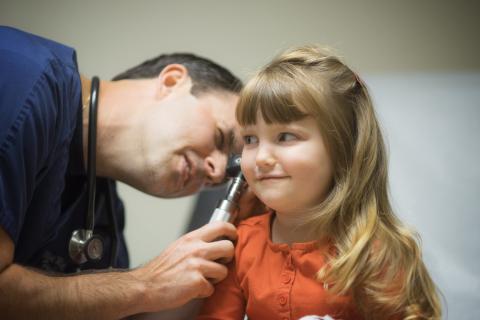Across the United States, there is an increasing need for primary care providers — especially in rural areas — and in Louisiana, 144 areas of the state are deficient in primary care providers.
Family nurse practitioners graduating from the University of Louisiana at Lafayette are helping to reduce that shortage.
Dr. Jennifer Lemoine, Graduate Coordinator for UL Lafayette’s Master of Science in Nursing and Doctor of Nursing Practice online programs, states that 78 percent of Louisiana is classified as a Health Provider Shortage Area.
The shortage of providers results in a lack of access to healthcare and impacts the health of local communities, with residents unable to receive preventative care and treatment for chronic conditions.
As the number of medical school graduates entering primary care has declined, the number of nurse practitioners has been rising.
According to a 2022 report from the Louisiana Center for Nursing, the number of nurse practitioners in the state rose 9 percent from 2021 to 2022.
Elliot Myers, a nurse practitioner in Washington, who earned his DNP online at UL Lafayette says he’s seen similar issues in his patient population.
“Without this clinic, these patients would be in the ER, which they have been, or neglecting their care,” he says. “This clinic’s been here for almost three years, and I’m still seeing new patients who have neglected their care for a long time.”
Myers grew up near the area where he now practices and is familiar with the geographic obstacles in accessing primary care services.
“No question about it, that’s the primary role of this clinic, to address the shortage of primary care physicians,” he says. “I’m here for that reason. We’re filling a need, a major need.” To help other nurse practitioners who are interested in establishing their own clinics, Myers developed a toolkit for nurse practitioners to use to assist them in opening rural health care clinics in Louisiana and the rest of the country.
To help other nurse practitioners who are interested in establishing their own clinics, Myers developed a toolkit for nurse practitioners to use to assist them in opening rural health care clinics in Louisiana and the rest of the country.
“I see how these clinics work here, and it makes a huge difference in these communities,” Myers says. “I hear consistently from other NPs who would love to do this but are unsure where to go… My goal is to make it easier.”
The finished rural primary care clinic toolkit, or guidebook, will include a variety of strategies and information for NPs to consider when starting a clinic including regulation information, building logistics, staff considerations, and federal and state requirements.
“It’s basically a step-by-step process of what to do,” he says. “Every situation and location could be a little different, but there are requirements that you need to meet.”
Dr. Lemoine says she and others have been going to the capitol for the last eight years, attempting to ease restrictions on nurse practitioners so that they can practice to the fullest extent of their education and training, further increasing their ability to practice in rural areas.
“We’re training a whole generation of health care providers that are perfectly positioned to fill that gap, particularly in those rural and Health Provider Shortage areas,” she says.
Learn more about how you can improve patient outcomes in your clinic, community, or health system through the University of Louisiana at Lafayette’s online graduate nursing programs. Request information today.